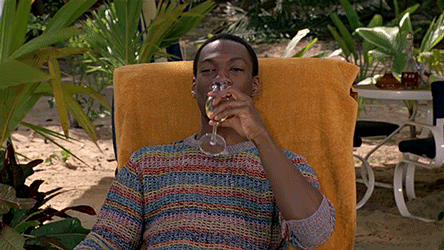
If there’s ever been a time to log off, it’s right now.
At this very moment, Facebook is embroiled in a data-harvesting hack that could spell the end of the platform’s decade-long reign as the world’s most popular social media network. The hashtag #DeleteFacebook is trending, and with good reason.
Just a few weeks back, Snapchat gon’ goofed with a disgracefully tone-deaf ad about slapping Rihanna. As a result, the company’s stock dropped $800 million. In the days that followed, Chrissy Teigen (who’s ranked the #5 most popular user) quit the app. This came hot off the tails of Kylie Jenner tweeting that she didn’t even “open Snapchat anymore.”… a single tweet that cost the app about a $1.6 billion bucks.
And if I, a journalist who writes on the internet, had a dollar for every time I heard the phrase “fake news” over the past two years, I would be on a Tahitian beach sucking back a frosty Corona, not sitting here writing this damn thing.

The thread that binds these stories together is that we, as consumers, are becoming disillusioned with social networking sites.
We’re no longer happy with our digital activity being bootlegged to third parties (not that we ever were, we were just too distracted with spicy memes to care). We’re no longer satisfied with the secretive algorithms that dictate what we do and don’t see. We’re far wiser than the side-fringed Myspace dwellers of yesteryear – and we want our social media to keep up.
Interestingly, the Zuck has promised “total revamp” of the privacy policies at Facey. In the meantime though, it seems like a good excuse to give a digital detox a go.
I don’t know about you, but social media is such an irrefutably large part of my life that I can’t imagine taking time off. I have an excuse (it’s my job), but the way in which using my phone has become second nature is mental. I feel weird if my phone isn’t on my person. Like I’m missing a limb.
I wake up, swipe my phone open and begin cycling through Insta, Facebook, Twitter and emails before my brain’s even registered I’m awake and it’s Wednesday and I’m late for work.
When that little red notification pops up, I can genuinely feel a little spike of adrenalin course through my body.
We spoke to clinical psychologist at TIFFXO.com and owner of Living Wise Psychology, Cassandra Dunn, about the sure signs you’re due for a digital break, and how to do it without feeling like you’re missing out on everything ever.
“Digital detox is a term used to describe any kind of enforced break from your screens and electronic devices. The intention of a digital detox is to break the habit of compulsive technology use and limit their intrusion into our lives,” says Dunn.
“People use the term digital detox to describe anything from taking a day off social media to going on holiday or retreat without access to the Internet.”
We asked Dunn if she’d recommend easing into it, or treating a digital detox like a freezing cold swimming pool and jumping right in.
“Most people like to start slowly and reduce the time spent on their devices before going cold turkey. While technically not a full detox, turning off your phone 30-60 minutes before bed can be a good challenge for some people, as can putting your phone into a drawer when you get home from work so you can spend uninterrupted time with your partner,” she says.
“Deleting social media apps from your phone, putting your phone into flight mode while you’re out for a walk or turning off push notifications are all small steps you can take to reduce the intrusion of devices and break the compulsive need to check for messages and alerts.”
Kick it off with some small changes and you might find you don’t need your phone as much as you think you do.
“If you decide to do a proper detox, some people find it reduces their anxiety if they let a few key people know that they won’t be contactable before logging off and shutting down for a full day or a weekend. A digital detox works best if you use it as an opportunity to take a complete break from regular life.
“Heading to the beach, camping or on a yoga, meditation or health retreat are great ways to break the technology habit while also replenishing your physical and mental wellbeing in other ways. The change of scenery can also make it easier to put down your device as there are new and different things to focus your attention on.”
Interestingly, Dunn made mention of the rise of ‘unplugged tourism’. It basically involves travelling without documenting every single meal and/or vista you encounter. Certain hotels actually use having no wifi as a selling point. It sounds crazy, but it really just goes back to what holidays were intended for: unwinding and escaping from the every day.

While taking some time off is something heavy users should at least try, Dunn believes social media does serve a purpose, and it can be a really positive part of our lives.
“The tricky thing is that there are a lot of positive benefits to social media use including self-expression, social connection and access to information so the challenge is to find the right balance between healthy and problematic use.”
AAMI Health Insurance sponsors this page.
AAMI Health Insurance is issued by nib health funds limited ABN 83 000 124 381 (nib) a registered private health insurer and is arranged by Suncorp Insurance Ventures as an authorised agent of nib for which it receives commission.



